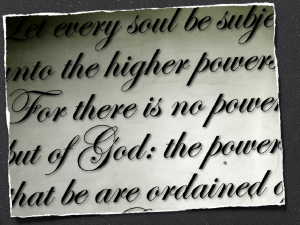by Scott McDermott
Guest Blogger
The Massachusetts Body of Liberties, 1641.
The Founding Fathers based the
American republic on the concepts of natural law, natural rights, popular
sovereignty, corporatism, the moral economy, and the right of resistance to
tyranny. All of these concepts derived
from Catholic political thought of the Middle Ages. But how did the Protestant Founders,
anti-Catholic to a man, come by these ideas?
In my book
Charles Carroll of Carrollton: Faithful Revolutionary,
I suggested that Carroll, the only Catholic signer of the Declaration of
Independence, served as a vector of Catholic political concepts during the
American founding. But Carroll, however
influential, was only one man. And the
thesis of Carroll's influence falls afoul of the objection that also thwarts
the usual scholarly explanation, that Catholic political ideas came to America
mediated and distorted through Enlightenment writings. But if Enlightened thinkers transmitted these
ideas, how did they become embedded in colonial political culture
long before the
Enlightenment reached these shores?
My
recent research suggests a most unlikely conduit for Catholic political
teaching in the American colonies:
Puritans educated in the tradition of Protestant scholasticism. Although Martin Luther famously rejected
scholastic learning, important early Reformers like
Theodore Beza and
Philipp Melanchthon understood
that Protestants would need scholastic tools in order to debate effectively
against Catholic apologists. Thus,
Protestant universities and academies retained the seven liberal arts and the
“three philosophies” -- metaphysics, natural philosophy, and moral philosophy
-- as the bedrock of their undergraduate curricula. While the theology course changed
drastically, theology was a graduate program, and most ministers in the English-speaking
world took up their posts possessing only a B.A. degree that rested on the
traditional Aristotelian learning of the Middle Ages. Their formation in political thought, taught
under the rubric of moral philosophy, derived from two textbooks, Aristotle's
Politics
and
Nicomachean Ethics, and such commentators on those works as Thomas
Aquinas and "
The Schoolmen," a tradition known as scholasticism.
The
chief bastion of Protestant scholasticism in England was Emmanuel College,
Cambridge. Historian Samuel Eliot Morison has shown that thirty-five former students at Emmanuel migrated to New England between
1630 and 1640. Of the “Emmanuel 35,”
eight spent time living in the village of Ipswich, Massachusetts. This group of men, who formed the nucleus of
what I call the “Ipswich Connection,” included some of the colony's most
important political leaders and constituted the main opposition to the policies
of Governor John Winthrop. Simon
Bradstreet served as the colony's governor; so did his father-in-law Thomas
Dudley. Emmanuel men Richard Saltonstall
and Daniel Denison also became part of Massachusetts' elite ruling class. But the
linchpin of the Ipswich Connection was Nathaniel Ward, a minister,
lawyer, and prolific author who took his B.A. in 1600 and his M.A. in 1603 from Emmanuel.
Nathaniel
Ward was the principal author of Massachusetts Bay's first law code,
the Body of Liberties of 1641, passed over Winthrop's strenuous objections. Other members of the Ipswich Connection
supported the code enthusiastically. The
Body of Liberties reveals at every turn the scholastic political formation of
its Ipswich backers, beginning with its title, which derives from the
scholastic doctrine of corporatism, the metaphor of society as a body combined
with the belief that political communities have a real and autonomous
existence. Indeed, Ward divided his
document into sections devoted to different corporate groups in society, namely
freemen, women, children, servants, “Forreiners and Strangers,” the churches,
and even domestic animals.
Natural
law and natural rights appear in the very first Liberty, which protected life,
liberty, and property:
No mans life shall be taken away,
no mans honour or good name shall be stayned, no mans person shall be arested,
restrayned, banished, dismembred, nor any wayes punished, no man shall be
deprived of his wife or his children, no mans goods shall be taken away from
him, nor any way indammaged...unlesse it be by vertue or equitie of some
expresse law of the Country waranting the same...or in case of the defect of a
law in any parteculer case by the word of god.
Numerous other liberties defined
due process of law, while Liberties 45 and 46 restricted the use of torture and
prohibited “inhumane Barbarous or cruel” punishment.
In
keeping with Catholic principles of moral economy, the Liberties banned
monopolies, provided for grazing rights on common lands, protected common
fishing and fowling rights, and prohibited “any usurie amongst us contrarie to
the law of god” (although an 8% penalty was permitted on overdue debts). The Preamble upheld the principle of popular
sovereignty by declaring that “We...ratify them [the Liberties] with our
sollemne consent,” while Liberty 98 defined the procedure for ratification by
the people. The Body of Liberties aimed
to produce a well-regulated body politic in which arbitrary government (of the
sort the Ipswich men believed Winthrop was exercising) would become impossible,
not only because the government had to respect the legitimate rights of
different orders in society, but because it protected the freemen's privilege
of political participation. The
Liberties do not explicitly invoke the right of resistance to tyranny, but the
dogged opposition by the Ipswich Connection to Winthrop embodies it.
For all these reasons,
the 1641 Body of Liberties provides a touchstone for those who seek the point when Catholic Scholastic political concepts entered the American body politic.
Scott McDermott has a Ph.D. in American History from Saint Louis University and is currently an Assistant Professor of History at Tusculum College in Greeneville, Tennessee.





